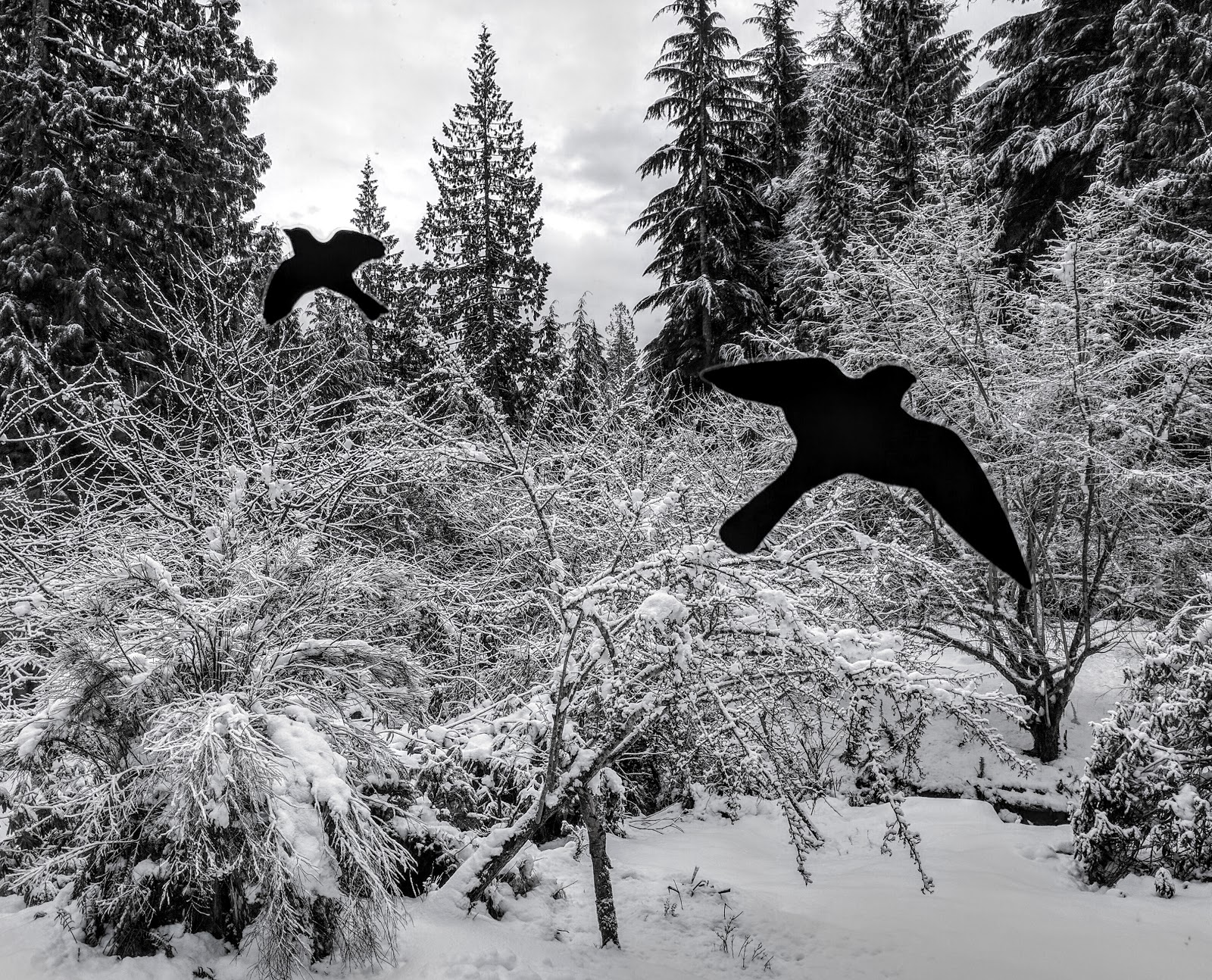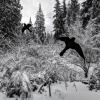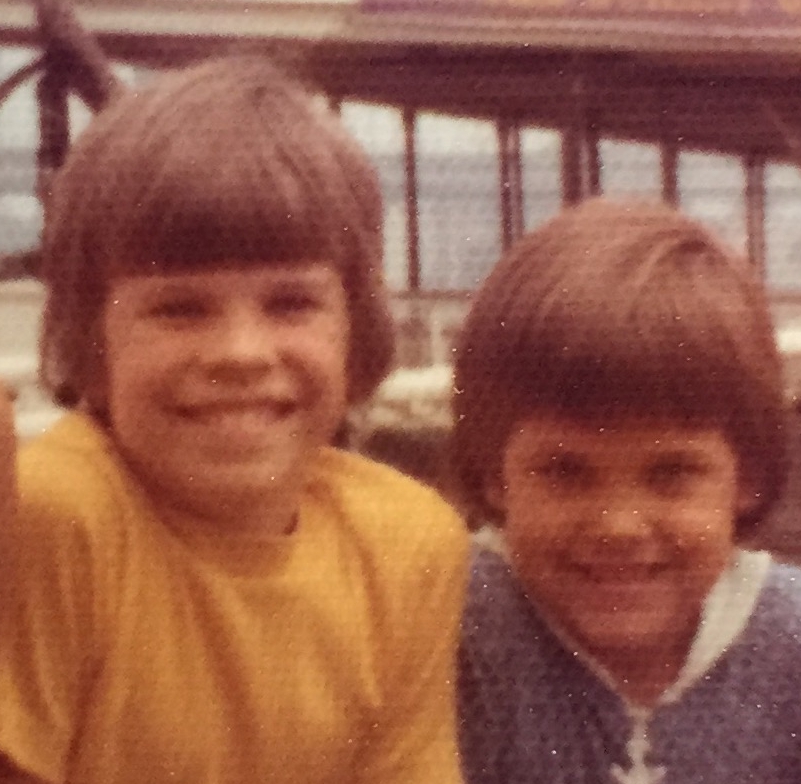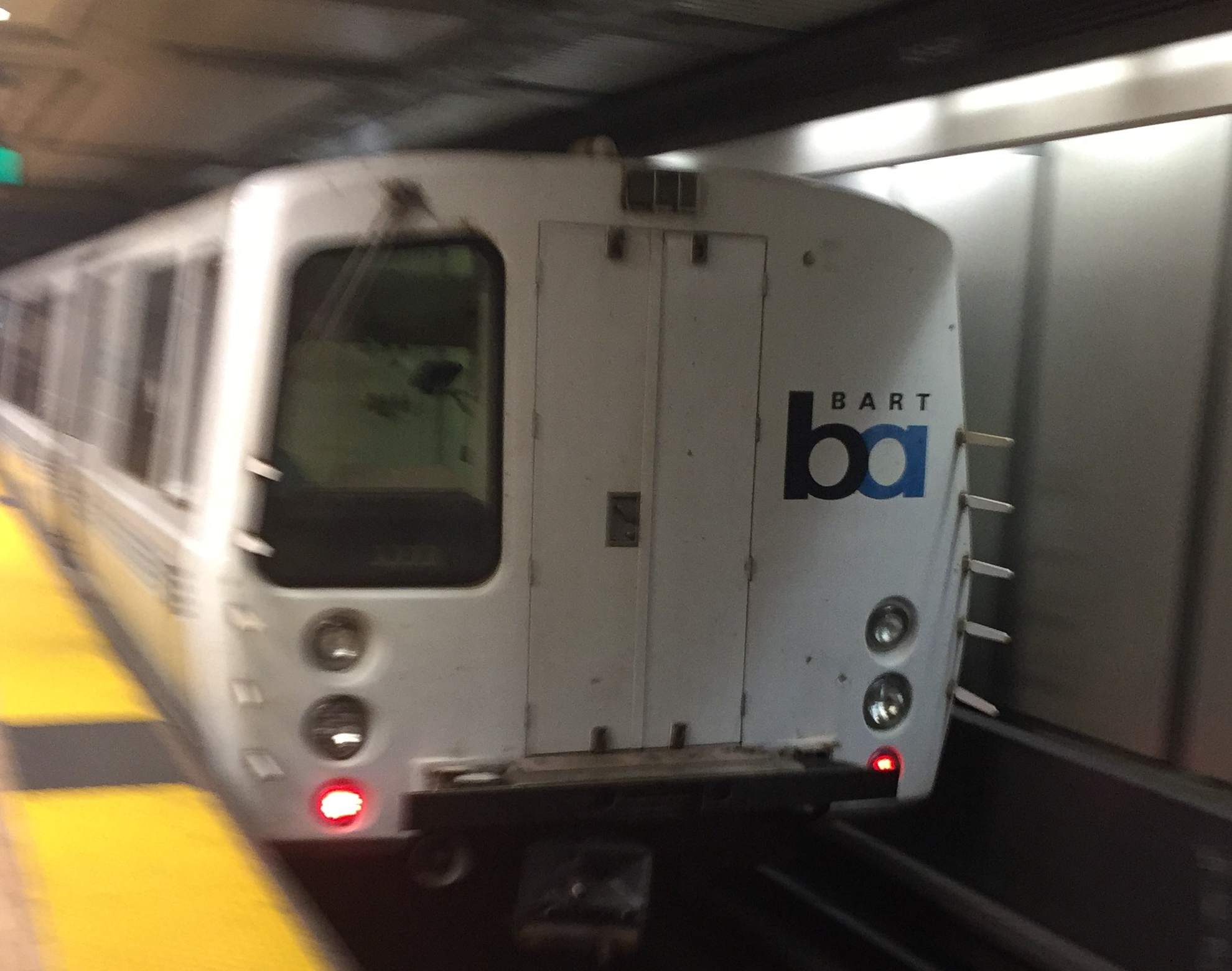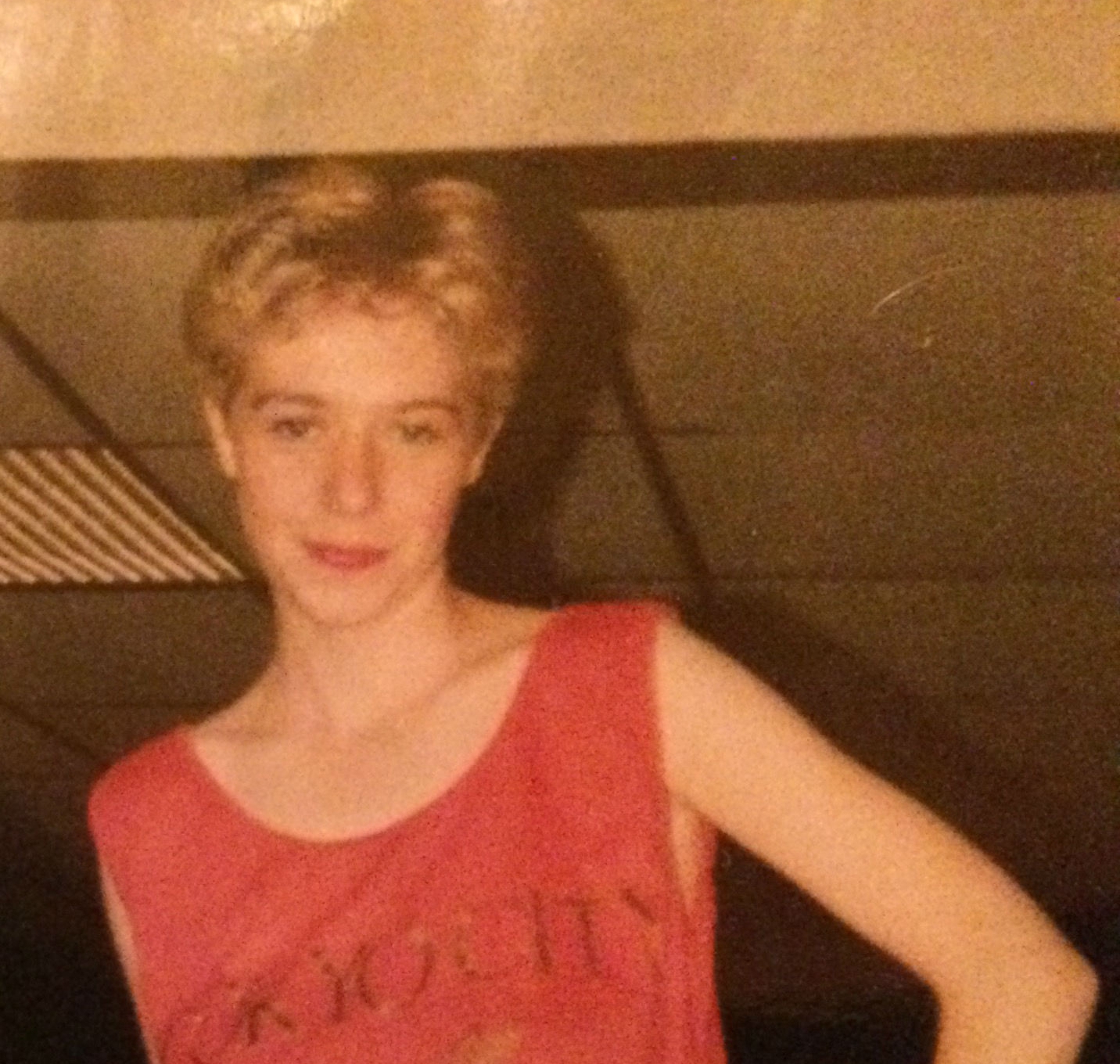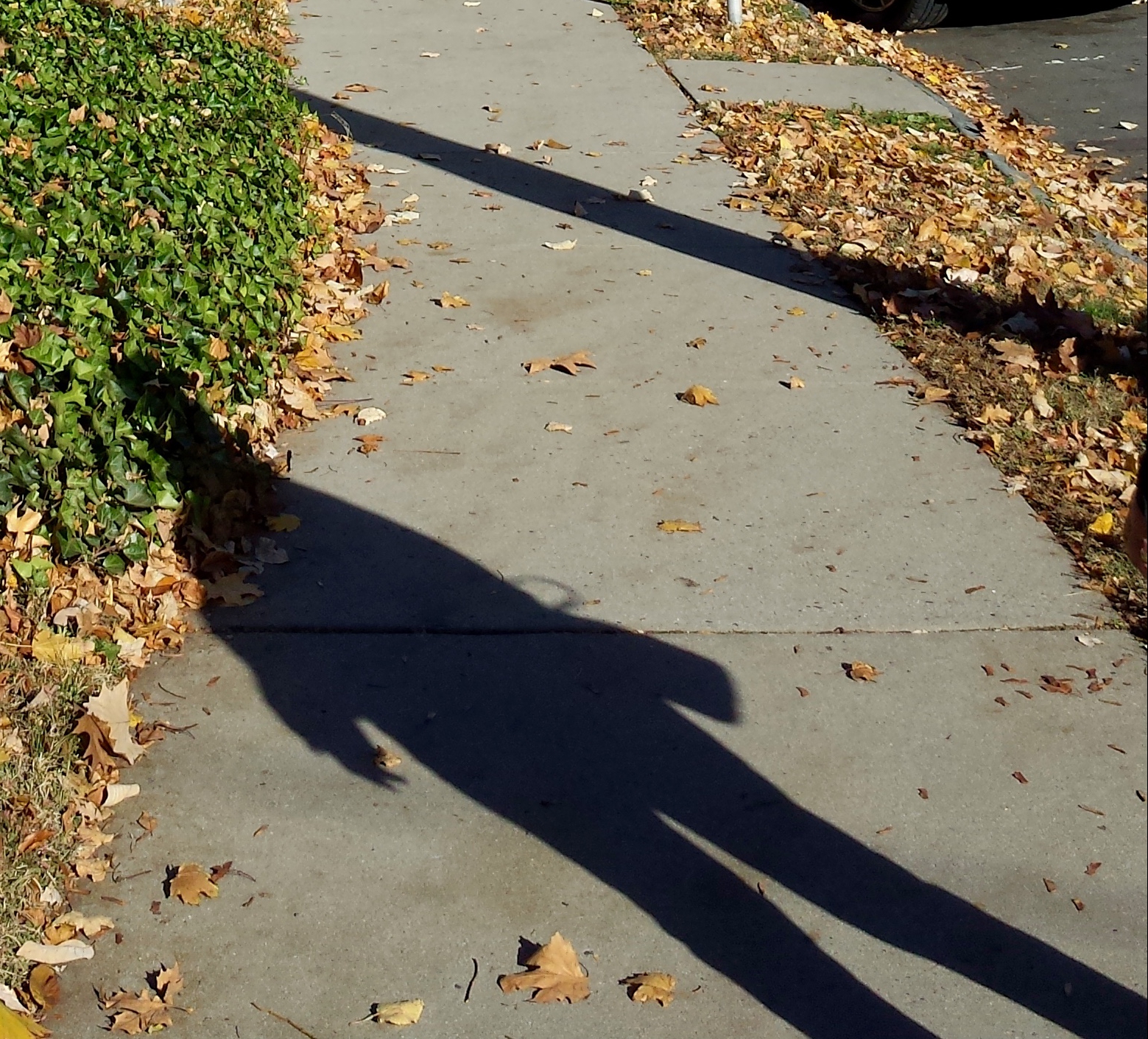Mr. Bielski was ninety-six years old when they discovered the cancer in his bones. It was summer, and I had just seen him at a dinner party at my parents’ home, in the green and humid suburbs of Toronto.
My parents had been celebrating their fortieth wedding anniversary, and twenty or so of their closest friends had converged on their patio, gathering at their table laden with red wine, vodka, szarlotka cake and strong black tea.
I’d been living downtown then, and had to cross the city by subway – through its throngs of baseball caps and ice cream cones – and arrived to the party a little late. My parents had many backyard gatherings like this, and as I walked up the driveway and clicked open the old metal gate that had squeaked for over twenty-five years, I brushed my arm against a moist leafy bush that somehow always got me wet and waded into the growing din of Polish voices rising and falling in argument. Emerging into the backyard hidden behind small fruit trees and twisting grape vines, I saw all the faces of the people who I at one time or another called ciocia, aunt, or wójek, uncle, even though we’d never had any family in Canada.
But we did have the Bielskis. They were not related to us, but their ties to my father reached far, far back, past our arrival to Canada in 1984, and my birth in Poland in 1980, past my sister’s birth two years before that, my parents’ wedding in London in the summer of ’74, past my father’s university days, and his high school days, and all the way back to when he was small, when he ran shrieking and skinny-legged with his best friend Wojtek – Mr. Bielski’s nephew – through the streets of postwar Warsaw.
When I was young, the Bielskis were the two really old people, always smiling and winking at me, strange and ancient, bending down from great heights, and whose old, large house we’d visit on weekends, near Runnymede. There, my sister and I’d play hide-and-seek in their damp basement, explore the empty upstairs bedrooms vacated by their three grown children. In the back of the house was a garden filled with tomato plants taller than us, rows of them, and we’d crawl through them as in a maze, yearning for secrets and mysteries and ghosts. Eventually we’d grow bored, find our mother in the living room where the adults gathered on couches talking passionately – this was the late eighties, the time of Solidarnosc – tug on her sleeve and whisper “Kiedy idziemy?” When are we going?
But as I grew older, I became fascinated by the past – its secrets and ghosts – and began visiting Mr. and Mrs. Bielski on my own. By then they’d grown too old for their Runnymede house, and had moved into a one bedroom condo overlooking High Park. The three of us would sit in their spacious living room, old Persian rugs and panoramic windows letting in great light, drinking black tea and eating chocolate covered plums.
They would tell me about the War. Mr. Bielski’s brother had died in Auschwitz, and Mrs. Bielski’s father had been the general of the PAF – the Polish Air Force. She and her mother were hunted by the Nazis after the invasion, so she crossed the continent to its other side, nursed soldiers, met her future husband.
Mr. Bielski had also escaped, with the Air Force through Hungary, and arrived in England for the dogfight of the Battle of Britain. I could barely imagine his stories. I’d try to picture him flying through the clouds in a hail of bullets, the roar of the motor drowning out all other sound except the clanging of metal on metal, gunfire, explosions and diving planes. I thought how terrifying it was, to strap yourself into a tin and fly it up into the sky like that, above the cold, dark waters of the Atlantic, hurtling at great speeds while shooting at anything silvery that flashed at you. Add the darkness of night, or lightning and thunder, and I’m at a loss.
I went to visit him at St. Mark’s Hospice two days before he died. It was almost Christmas, and the city had retreated into the cold winter dark. Icy piles of sullied grey snow lined the sidewalks, and the barren maples shimmered with tiny brilliant white lights. It was only five-thirty in the evening, but already I rode through the blackness of night.
I thought of the last time I’d seen Mr. Bielski, in my parents’ backyard that summer. I remembered that he’d been speaking as I approached, and could hear the melody of his voice as it urgently and excitably reached above everyone’s laughter. Visions of his sheer breadth and height crossed through my mind, his barrel chest, his awesome forehead and cheekbones; the way he’d sat tall and proud like a general against the brick wall of our house, nestled amongst my mother’s hanging planters overflowing with purple petunias. His arms gestured wildly, and in my mind’s eye he laughed and he laughed, his white hair radiant in the setting sun.
I knew Mr. Bielski would look different since I saw him that summer, and I knew the cancer would kill him. I knew he was weak and that he’d lost a lot of weight: my parents had told me all this. But even though I’d been informed, I was stunned when I walked into the room, and saw what the sickness had done to him. It wasn’t just that he was skinnier, but shrunken, as though a tiny version of Mr. Bielski had hatched like a Russian doll. His neck had disappeared, collapsed into his collarbone, and his head now seemed too large for the frail and bony body it sat on. The face I knew was gone, replaced with teeth and jaw, brow and cheekbone. His skin had gathered around his arms, and hung loosely from his bones.
From this, peered out two darkened eyes, stricken and wild. Restless.
Who was this creature? I composed my face into a smile, and entered.
My father was already in the hospital room, seated on the edge of his chair. His eyes were slowly roaming the walls, searching for something: a happy story, or a beautiful sentence. Perhaps there was a piece of joyful news to find, somewhere in a dusty crack or corner? But the walls of the room offered nothing, staring back implacably with all their whiteness. So he sat there, his lips stretched into a strange and half-crazed smile, the room thick with his silence.
“Wojtek is flying in tomorrow!” my father suddenly shouted.
“Yes…” replied Mr. Bielski, unmoved. “I know.”
My father looked over at me with his strange smile.
I gave him a blank look in return. What do you say to someone who is dying?
“Can I do something for you?” I offered. I had already kissed Mr. Bielski’s cheeks, and pulled up a chair next to his bed, beside my father. “Can I get you something to drink?”
“No,” he replied, indifferent. He was sitting on the bed at a strange angle, leaning back on his elbows, his surprisingly swollen legs hanging over the side.
"Some tea maybe?"
He shook his head, no.
I looked around the room. There wasn’t much to rest my eyes on. It was vacant of any past or future; no stories hung from its walls, no colour to suggest feeling. The mute whiteness was interrupted only by a large gaping window that looked out onto the raging black of the winter night. Long bony branches of a barren tree reached up to us from the ground.
I looked away. “Maybe you are hungry. Can I get you something to eat?"
“No, I can’t eat anything.” His eyes scanned the empty room.
Outside the wind blew. Branches clawed at the glass.
My father and I exchanged another glance, and I tried one more time. “Is there anything at all that you want?”
This question seemed to hit on something, and he looked me square in the eye, like a bull. “Chce umrzecz,” he said. He gave a small astonished laugh. “So that’s how it is at the end, then,” he muttered to himself. “Ha! So that’s how it is.” He nodded his head firmly, as though finally putting something to rest, then looked up at us and said it once more: “Chce umrzecz.” I want to die.
The words fell on us like freezing water. A cool breeze blew within me, exposing my hollowness. I groped for something to fill the silence, but I came up empty.
I looked over at my father. His lips were sealed into a tight thin line, his eyes wide and cartoonishly round. He glanced at me after a moment, then he looked down at the polished floor and rested his forehead in his hand. His eyes clouded over, and he fell deep into thought. Silence began filling the room like a slow moving fog. I could see my father was searching himself for words, for a solution to Mr. Bielski’s pain, to the death that was coming for him, and to this whole unacceptable business of mortality. This search made his silence even louder – weightier – as though its intensity would burn a hole right through his chair, or the very space-time coordinates that held him.
High heels clicked and echoed down the hallway outside. Relief rippled through me; my father’s eyes lit up. He straightened in his chair and looked to the door.
My mother rustled into the room, breathless, sure. She greeted Mr. Bielski hurriedly, bending to fix his sheets, apologizing and explaining her lateness. She had brought pickle and smoked kielbasa soup, “Would you like some now?”
“No, no. Thank you my dear,” he replied weakly, raising his hand and shaking his head, “I can’t eat anything.”
She hid her disappointment and lay the Tupperware on the windowsill, then she pulled up a chair next to us and sat down. She gave the room a quick surveying glance, a hint of boredom or distaste momentarily flashing through her eyes. But she filed it away, and launched into the small talk my father and I hoped she had brought.
“How are you feeling? You are looking well. So much snow everywhere! I tell you the streetcar took forever...”
My father and I looked from her to Mr. Bielski, and grinned.
“…And this room. I just couldn’t find it.” She laughed and looked around with widened eyes. “This place is a maze. What is this notebook next to you? Oh, wow, look at those drawings. I guess you’ve been busy…!”
Mr. Bielski nodded his head and mumbled a reply.
I retreated happily back into myself, allowing my mother to take over. She was talking more than usual, trying to fill that uneasy space that exists between the living and the dying. Her words and laughter rushed into this space like a river, as if in this way she could reclaim it, from all the sadness by which it was haunted.
“You must be thirsty. Can I get you some tea?”
“No, no.”
“Some water?”
No, he didn’t want any water either.
My parents looked at each other. Another blanket? Perhaps the curtains should be closed. Or more opened? Finally after a few minutes of this, Mr. Bielski conceded – I think out of pity for the three of us – that he’d like some cold milk.
My father tore from his chair in search of milk, while my mother rummaged for straws and napkins. I stayed in my chair, relieved that I could finally have a moment alone with him.
As my parents momentarily met at the trash can and created a slight commotion – of whispers and crunching plastic – Mr. Bielski turned to me and locked his eyes with mine. Suddenly, he took on the air of a co-conspirator. He glanced quickly behind him at my parents, then leaned across his bed towards me. “Death–” he whispered, “–is horrific.”
His eyes lingered on mine, boring into them. He nodded his head insistently. “Horrific.”
I said nothing. I waited, held his gaze. I summoned all my courage to meet it steadily, willing him to go on. But my parents returned, and he withdrew.
He began sipping the milk my mother handed him, and sent me a long, hard glance as he drank from it.
We left soon after, and told him we would see him again in two days, on Sunday. “Goodbye,” I said, and immediately regretted my choice of words, for sounding too final. “See you on Sunday,” I added.
He nodded at me and winked knowingly.
I walked out into the cold and unchained my bike. Everything sat heavy in my chest; words I’d been unable to say crowded in my throat: Goodbye. Thank you. Goodbye.
My bike squeaked slowly and evenly along the frozen road, amidst the noisy splashing of passing cars. Night was gathering behind white lights, massive and soundless.
*Mr. Bielski's name has been changed for privacy.
Maria Ewiak was born in Warsaw, Poland. In 1983, her family left the country for London, England, then relocated once more to Toronto, Canada. Maria studied History at the University of Toronto where she focused on nationalism and collective memory, then enrolled in University of Toronto’s creative writing courses a few years later. She continues to study and write about memory and the past in her essays, poems, and short stories. Her work was featured at a 6th House Publishing event in Toronto. Maria lives with her partner in Vancouver, B.C.
